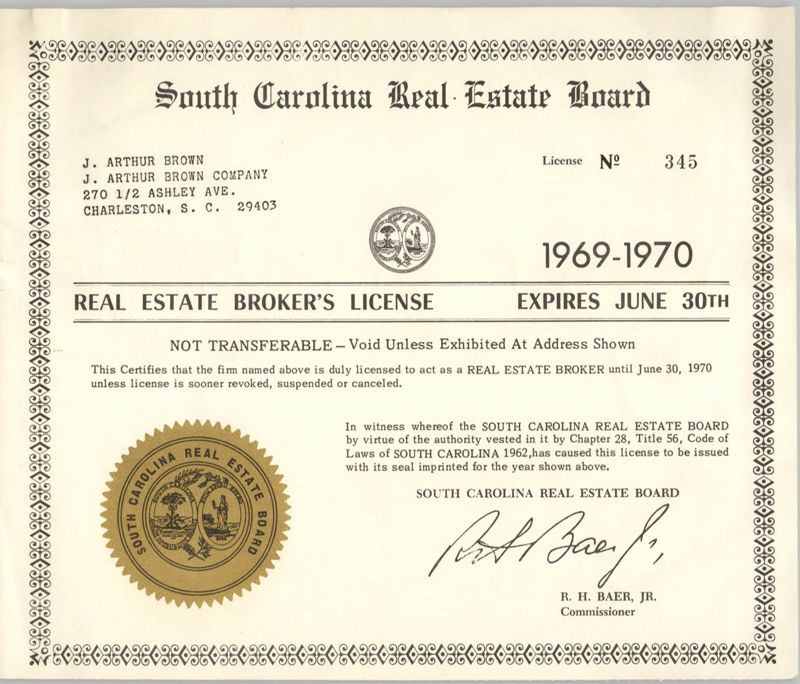
A license is the first step in your journey to becoming a real estate agent. There are many costs involved. From the exam fee to continuing education classes, there are many. The cost of a license to be a real estate agent varies depending on where you live. It is crucial to research the costs of a license and ensure they are reasonable. This will allow you to begin your new career using the right tools.
Before applying for a license you must ensure that you have met all requirements. Some states have higher requirements than others. California has several requirements. In order to get your license, you must also complete a background check and fingerprinting process.
A background check is required in order to become licensed New York real-estate agent. The cost of obtaining a license can vary depending on which type of license you're applying for. Online courses and in-person classes are both options. However, online classes tend to be less expensive than attending classes in-person.

To get your New York Real Estate License, you will need to pay an application fee of 65 dollars. This fee will cover background check and fingerprinting. When you apply, you will also need to pay a state exam fee of $15.
You must renew your license every two years after you have received it. You will need two hours of training related to agency during the renewal period. You will also need to submit a background check as well as an E&O policy. Once your renewal is complete you can start work.
You have many options for paying for your real-estate license. These include personal checks, cash, and credit cards. The cost of your license depends on where you live and the provider you choose. Typically, it takes 6-8 weeks to process an application. Sometimes, however, it may take longer.
The cost of getting a New York real estate license can range from $200 to $700. While the overall cost is relatively affordable, it can be hard to determine exactly how much you will need to pay. One factor to consider is how long you plan on spending studying. You will have a better chance of passing the licensing exam if you spend more time studying. Therefore, it may be beneficial to sign up for an 8-hour crash course to help prepare you for the exam.

Getting your license can be an exciting career. But, patience is key. It takes most people at least two attempts before they pass the exam. Failing the exam can prevent you from obtaining your license. Fortunately, the New York Department of Real Estate provides a retake program through their eAccessNY account.
FAQ
What are the cons of a fixed-rate mortgage
Fixed-rate loans have higher initial fees than adjustable-rate ones. You may also lose a lot if your house is sold before the term ends.
What flood insurance do I need?
Flood Insurance covers flood damage. Flood insurance can protect your belongings as well as your mortgage payments. Learn more information about flood insurance.
What is a reverse mortgage?
Reverse mortgages are a way to borrow funds from your home, without having any equity. This reverse mortgage allows you to take out funds from your home's equity and still live there. There are two types to choose from: government-insured or conventional. If you take out a conventional reverse mortgage, the principal amount borrowed must be repaid along with an origination cost. FHA insurance covers the repayment.
Do I need a mortgage broker?
A mortgage broker may be able to help you get a lower rate. Brokers have relationships with many lenders and can negotiate for your benefit. Brokers may receive commissions from lenders. You should check out all the fees associated with a particular broker before signing up.
Do I need to rent or buy a condo?
Renting might be an option if your condo is only for a brief period. Renting can help you avoid monthly maintenance fees. However, purchasing a condo grants you ownership rights to the unit. You can use the space as you see fit.
What should I consider when investing my money in real estate
It is important to ensure that you have enough money in order to invest your money in real estate. If you don’t save enough money, you will have to borrow money at a bank. It is important to avoid getting into debt as you may not be able pay the loan back if you default.
You should also know how much you are allowed to spend each month on investment properties. This amount should cover all costs associated with the property, such as mortgage payments and insurance.
It is important to ensure safety in the area you are looking at purchasing an investment property. It is best to live elsewhere while you look at properties.
Statistics
- It's possible to get approved for an FHA loan with a credit score as low as 580 and a down payment of 3.5% or a credit score as low as 500 and a 10% down payment.5 Specialty mortgage loans are loans that don't fit into the conventional or FHA loan categories. (investopedia.com)
- This seems to be a more popular trend as the U.S. Census Bureau reports the homeownership rate was around 65% last year. (fortunebuilders.com)
- This means that all of your housing-related expenses each month do not exceed 43% of your monthly income. (fortunebuilders.com)
- The FHA sets its desirable debt-to-income ratio at 43%. (fortunebuilders.com)
- Based on your credit scores and other financial details, your lender offers you a 3.5% interest rate on loan. (investopedia.com)
External Links
How To
How to become real estate broker
An introductory course is the first step towards becoming a professional real estate agent. This will teach you everything you need to know about the industry.
The next step is to pass a qualifying examination that tests your knowledge. This requires you to study for at least two hours per day for a period of three months.
This is the last step before you can take your final exam. To be a licensed real estate agent, you must achieve a minimum score of 80%.
Once you have passed these tests, you are qualified to become a real estate agent.